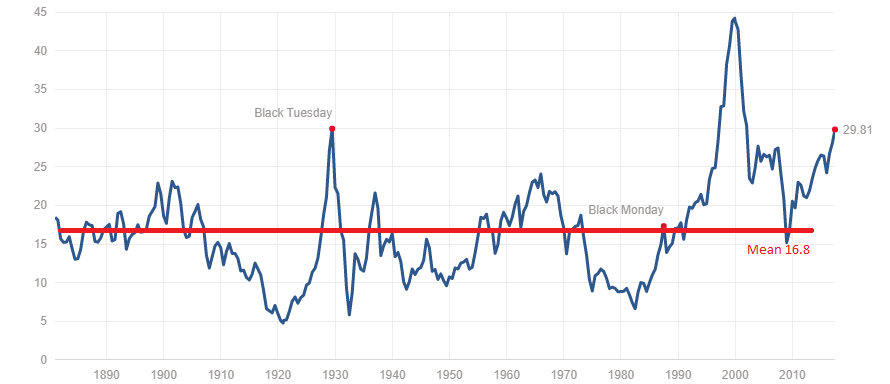The Looming Threat Of Google's Breakup: Examining The Antitrust Concerns

Table of Contents
Google's Market Dominance Across Multiple Sectors
Google's dominance isn't confined to a single sector; it spans multiple key areas of the digital economy, raising serious antitrust concerns.
Search Engine Monopoly
Google's overwhelming share of the search engine market is undeniable. This near-monopoly raises significant concerns about stifled competition and suppressed innovation.
- Market Share: Google consistently holds over 90% of the global search engine market share.
- Impact on Smaller Search Engines: Smaller competitors struggle to gain traction, facing an uphill battle against Google's vast resources and established dominance. This can lead to accusations of manipulating search results to favor Google's own products and services, further hindering competition.
- Antitrust Violations: Multiple investigations and lawsuits have been filed against Google alleging anti-competitive behavior in search, focusing on its use of its dominance to stifle competition and benefit its own products and services. Keywords: Search engine market share, Google search dominance, antitrust violations, competition suppression.
Android's Control over the Mobile Ecosystem
Google's Android operating system dominates the mobile market, giving it immense control over the mobile ecosystem. This control raises concerns about potential anti-competitive practices.
- Android's Market Share: Android holds a significant global market share of mobile operating systems, dwarfing its competitors.
- Pre-installed Google Apps: The pre-installation of Google apps on most Android devices gives Google an inherent advantage, potentially locking out competitors and limiting consumer choice.
- Impact on App Developers: The Google Play Store's dominance gives Google significant leverage over app developers, potentially influencing app pricing and distribution strategies. This can stifle competition among app developers and limit consumer options. Keywords: Android monopoly, mobile operating system market, app store competition, Google Play Store dominance.
Dominance in Online Advertising
Google's revenue is largely driven by its dominance in the online advertising market, raising concerns about its market power and potential for manipulation.
- Google's Advertising Revenue: Google's AdSense and AdWords platforms control a vast portion of the digital advertising market, generating billions in revenue.
- AdSense and AdWords Dominance: This dominance allows Google to influence advertising prices and potentially exclude smaller competitors from accessing key advertising channels.
- Concerns about Data Privacy and Market Manipulation: Critics point to potential data privacy concerns arising from Google's vast data collection capabilities and the potential for manipulating ad placements to favor Google's own products. Keywords: Online advertising market, Google Ads, AdSense, digital advertising monopoly, data privacy concerns.
Arguments for Breaking Up Google
The concerns surrounding Google's market power have fueled arguments for breaking up the company, aiming to promote competition and protect consumers.
Promoting Competition and Innovation
Breaking up Google could foster a more competitive and innovative market landscape.
- Examples of Potential New Entrants: A breakup could create space for new entrants in search, mobile operating systems, and online advertising, potentially leading to innovative new products and services.
- Fostering Innovation in Search, Mobile OS, and Advertising: Increased competition could drive innovation across these sectors, leading to better user experiences and more choices for consumers. Keywords: Increased competition, innovation, fostering a level playing field, breaking up monopolies.
Protecting Consumer Choice and Data Privacy
A breakup could empower consumers by increasing choices and enhancing data privacy protections.
- Improved Data Privacy Options: A more fragmented market could lead to increased transparency and potentially better data privacy options for users.
- More Choices in Search and Mobile Operating Systems: Consumers could benefit from a wider array of search engines and mobile operating systems, fostering competition and innovation.
- Greater Transparency in Advertising: Increased competition could lead to greater transparency in online advertising, potentially reducing the influence of data tracking and manipulative practices. Keywords: Consumer choice, data privacy, user data protection, anti-competitive practices.
Arguments Against Breaking Up Google
Despite the concerns, there are arguments against breaking up Google, citing potential negative consequences and contributions to innovation.
Potential Negative Consequences
A Google breakup could have unintended negative consequences.
- Fragmentation of Services: Breaking up Google's integrated services could lead to fragmentation and compatibility issues, creating inconvenience for users.
- Increased Costs: The breakup could increase costs for businesses and consumers due to increased development and operational expenses.
- Potential Service Disruptions: The process of separating Google's different entities could lead to temporary or even permanent service disruptions. Keywords: Fragmentation of services, increased costs, potential disruptions, unintended consequences.
Google's Contributions to Innovation
Google has made significant contributions to technology and innovation. A breakup might hinder future progress.
- Examples of Google's Innovations: Google has been responsible for numerous technological advancements, from search algorithms to Android and self-driving cars.
- Contributions to Open Source Projects: Google's contributions to open-source projects have significantly benefited the tech community.
- Impact on Research and Development: Breaking up Google could negatively impact its substantial investment in research and development. Keywords: Google's innovations, technological advancements, research and development, open source contributions.
Conclusion
The debate surrounding Google's breakup is complex and multifaceted. While concerns about its market dominance and anti-competitive practices are valid and warrant careful consideration, the potential negative consequences of a breakup must also be weighed. Understanding the arguments for and against a Google breakup is crucial to forming an informed opinion on this vital issue. Continue your research on Google's breakup to participate in this vital discussion about the future of the tech landscape. The future of competition, innovation, and consumer choice hinges on the outcome of this ongoing debate surrounding Google's dominance and the potential for a breakup.

Featured Posts
-
 The Countrys Top New Business Locations A Comprehensive Map
Apr 22, 2025
The Countrys Top New Business Locations A Comprehensive Map
Apr 22, 2025 -
 Top Chinese Indonesian Officials Strengthen Security Cooperation
Apr 22, 2025
Top Chinese Indonesian Officials Strengthen Security Cooperation
Apr 22, 2025 -
 New Business Hotspots Across The Country An Interactive Map
Apr 22, 2025
New Business Hotspots Across The Country An Interactive Map
Apr 22, 2025 -
 Stock Market Valuations Bof As Reassuring Analysis For Investors
Apr 22, 2025
Stock Market Valuations Bof As Reassuring Analysis For Investors
Apr 22, 2025 -
 Us South Sudan Partnership For Coordinated Deportee Repatriation
Apr 22, 2025
Us South Sudan Partnership For Coordinated Deportee Repatriation
Apr 22, 2025
